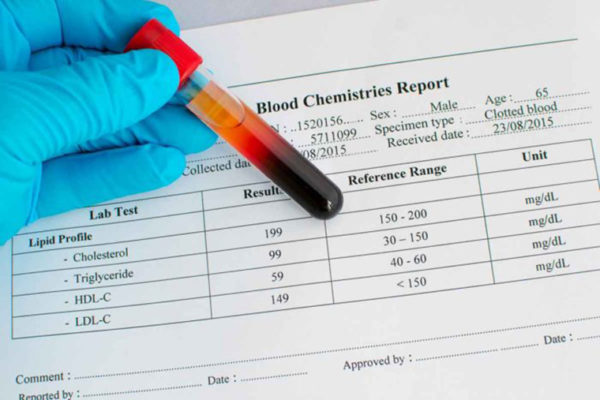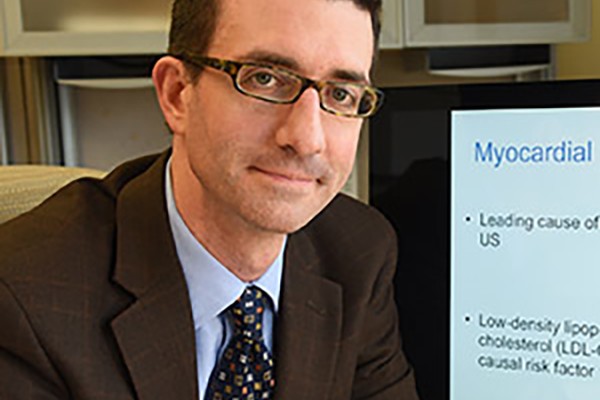High and low levels of ‘good cholesterol’ may cause premature death
Commonly touted as “good cholesterol” for helping to reduce risk of stroke and heart attack, both high and low levels of high-density lipoprotein (HDL) cholesterol may increase a person’s risk of premature death, according to new research at the School of Medicine and Veterans Affairs St. Louis Health Care System.
New clues in mice link cholesterol to fertility
Whether made by the body or ingested through diet, cholesterol plays a vital role in cells. Cholesterol also is a building block of steroids and hormones, including those that trigger puberty and support pregnancy. A new study, led by Daniel Ory, MD, implicates a surprising regulator of cholesterol in cells’ ability to make these hormones, especially in tissues associated with fertility, such as the ovaries.
Study shows who benefits most from statins
New research suggests that widely used statin therapy provides the most benefit to patients with the highest genetic risk of heart attack. Using a relatively straightforward genetic analysis, the researchers, including Nathan O. Stitziel, MD, PhD, assessed heart attack risk independently of the traditional risk factors.
Problems in recycling cellular waste linked to clogged arteries
Researchers at Washington University School of Medicine in St. Louis have found that problems with a digestive process in cells can clog arteries. The finding could provide a target for future therapies aimed at preventing or reversing atherosclerosis.
Surgery to prevent stroke causes too many complications
An operation for preventing repeat strokes in high-risk patients has failed in a multi-institutional clinical trial, led by Colin P. Derdeyn, MD, professor of radiology at Washington University School of Medicine. Results are reported in the Journal of the American Medical Association.
Cholesterol drugs may improve blood flow after stroke
Cholesterol-lowering drugs known as statins may help clot-busting drugs treat strokes, according to researchers at Washington University School of Medicine in St. Louis. “We’ve known that patients on statins have better stroke outcomes, but the data in this study suggest a new reason why: Statins may help improve blood flow to brain regions at risk of dying during ischemic stroke,” says senior author Jin-Moo Lee, MD, PhD, director of the cerebrovascular disease section in the Department of Neurology. The results appear online in the journal Stroke.
Inhibiting fatty acids in immune cells decreases atherosclerosis risk
Scientists at Washington University School of Medicine in St. Louis have found a way to significantly reduce atherosclerosis in mice that does not involve lowering cholesterol levels or eliminating other obesity-related problems. Atherosclerosis is the process through which fatty substances, such as cholesterol and cellular waste products accumulate in the lining of arteries. The research team inhibited atherosclerosis in the mice by interfering with production of a substance called fatty acid synthase, an enzyme that converts dietary sugars into fatty acids in the liver.
Early-stage diabetic heart disease mimicked in mouse hearts
The brighter signal over the transgenic heart indicates fat uptake and metabolism are greatly increased.Heart disease is the leading cause of death among the more than 13 million diabetics in the United States. Researchers at the School of Medicine have found that in mice whose heart muscles take up high amounts of fat, the heart fills abnormally after each contraction, a condition that is consistent with the first stage of heart dysfunction in human diabetics.
Early-stage diabetic heart disease mimicked in mouse hearts
The brighter signal over the transgenic heart indicates fat uptake and metabolism are greatly increased.Heart disease is the leading cause of death among the more than 13 million diabetics in the United States. Researchers at Washington University School of Medicine in St. Louis have found that in mice whose heart muscles take up high amounts of fat, the heart fills abnormally after each contraction, a condition that is consistent with the first stage of heart dysfunction in human diabetics.


